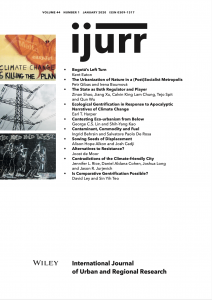Processes of politicization and depoliticization are increasingly studied in relation to urban contexts, and cities have been depicted as incubators of social movements. What has been largely ignored is why, in some cities, forces of politicization or depoliticization are stronger than in others. To address this question, this article compares two British cities—Manchester and Bristol—which have historically been central hubs of environmental resistance, but currently face similar depoliticizing forces: austerity, anti‐squatting laws, police repression and activists’ disillusion with environmentalism. Curiously, these conditions have had very different impacts on the two environmental scenes. In Manchester they have caused environmental resistance to become replaced almost entirely by non‐confrontational ‘alternatives’. In Bristol alternatives have emerged that tend to be in synergy with environmental resistance. The comparison thus suggests that Bristol is more conducive to maintaining environmental resistance under depoliticizing conditions. Findings suggest that differences can be attributed to features of the physical urban environment, including city size. Historically, these differences were not decisive. Yet, after a period of dwindling environmentalist energy in the UK, the number of environmentalist hubs has been reduced. This has prompted a reputational snowball that increasingly concentrates environmental resistance in the one city that best insulates the environmental movement from broader depoliticizing forces.

